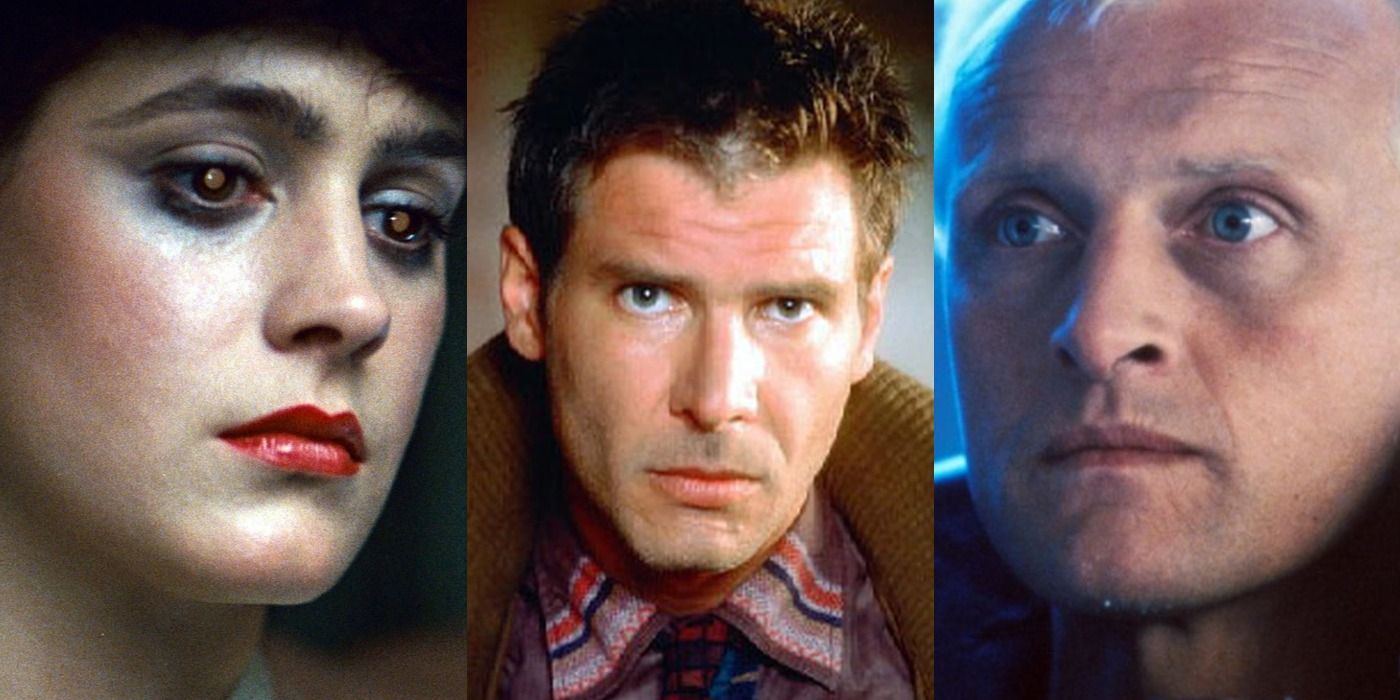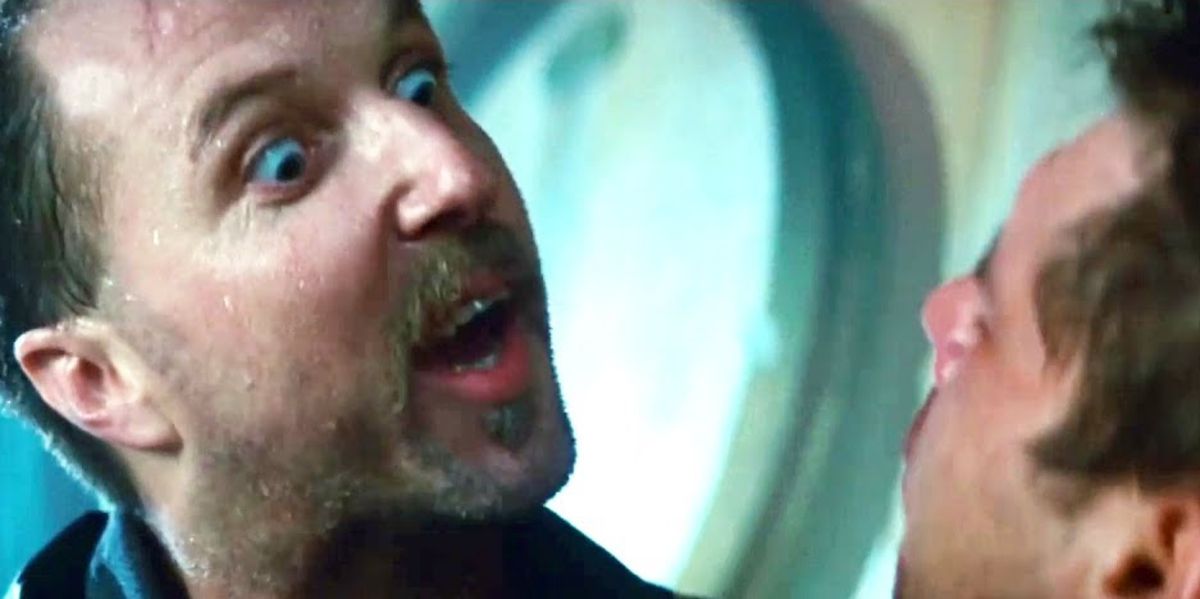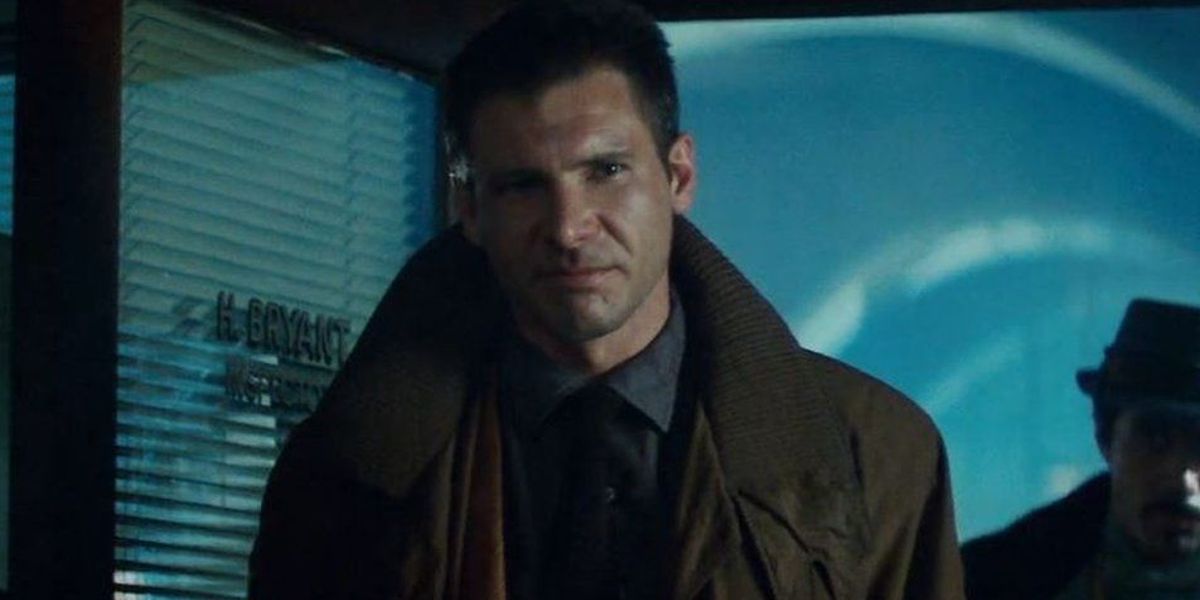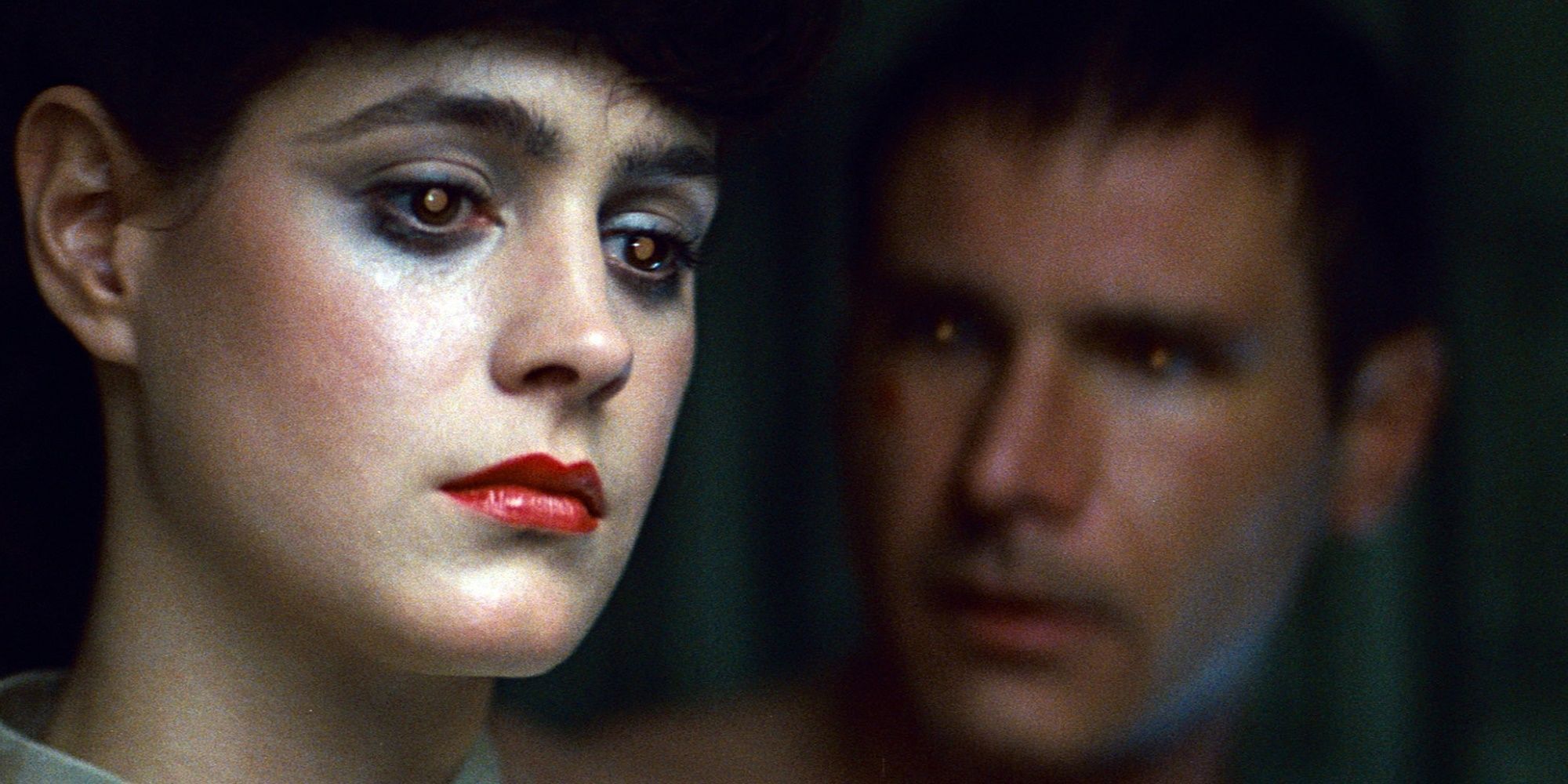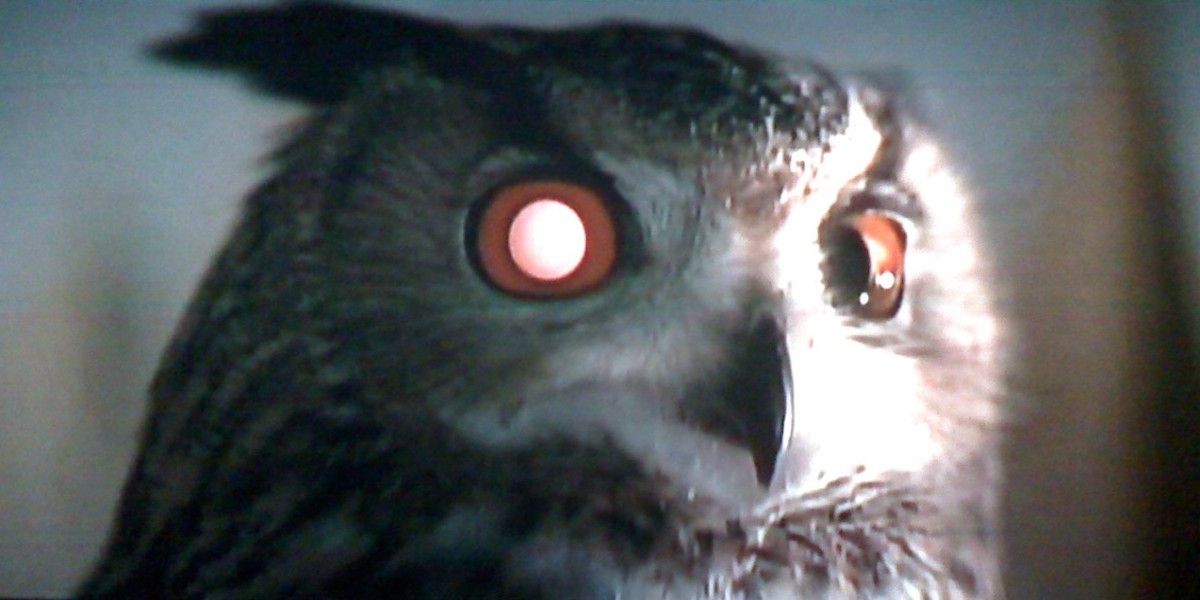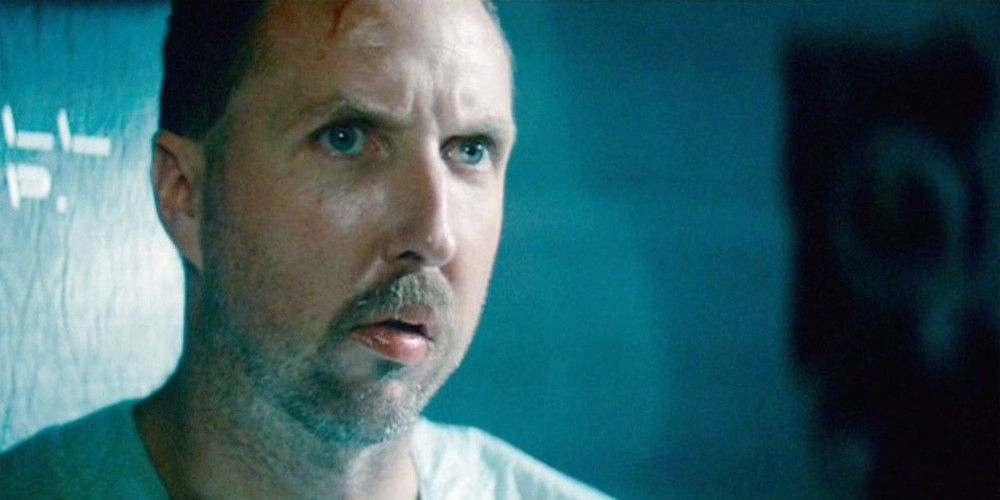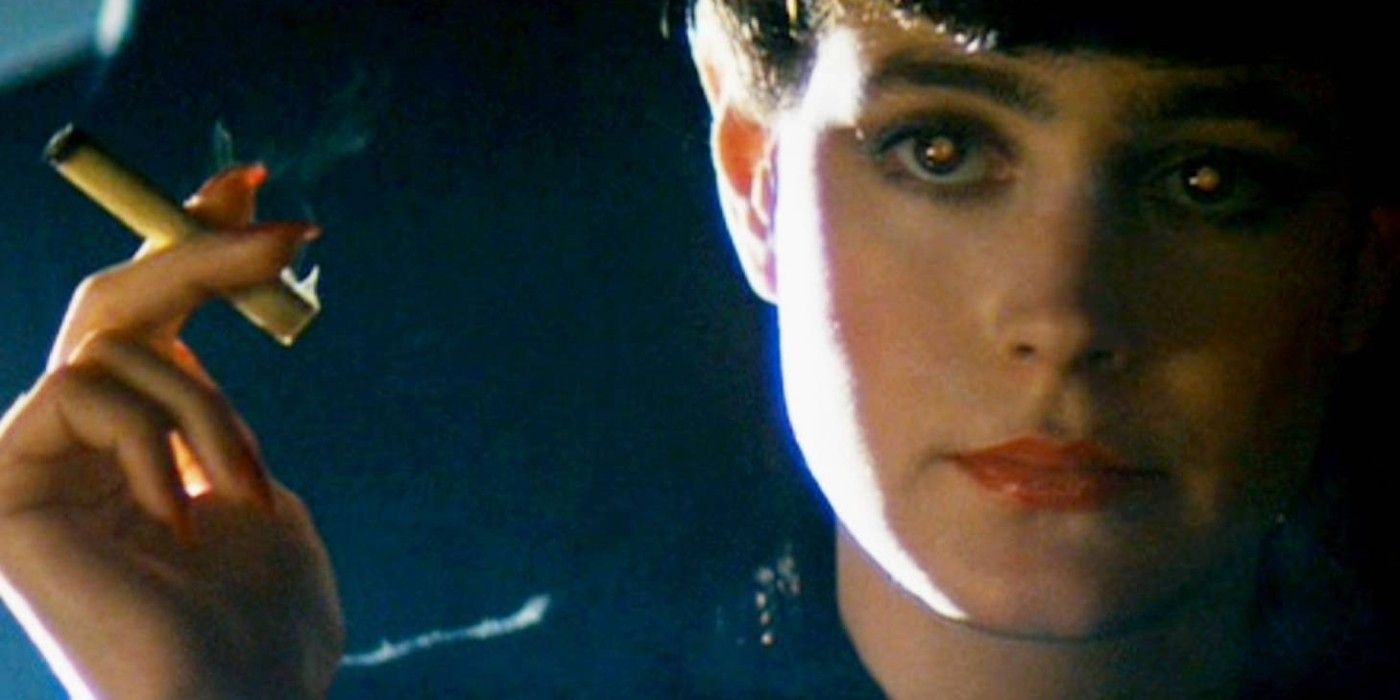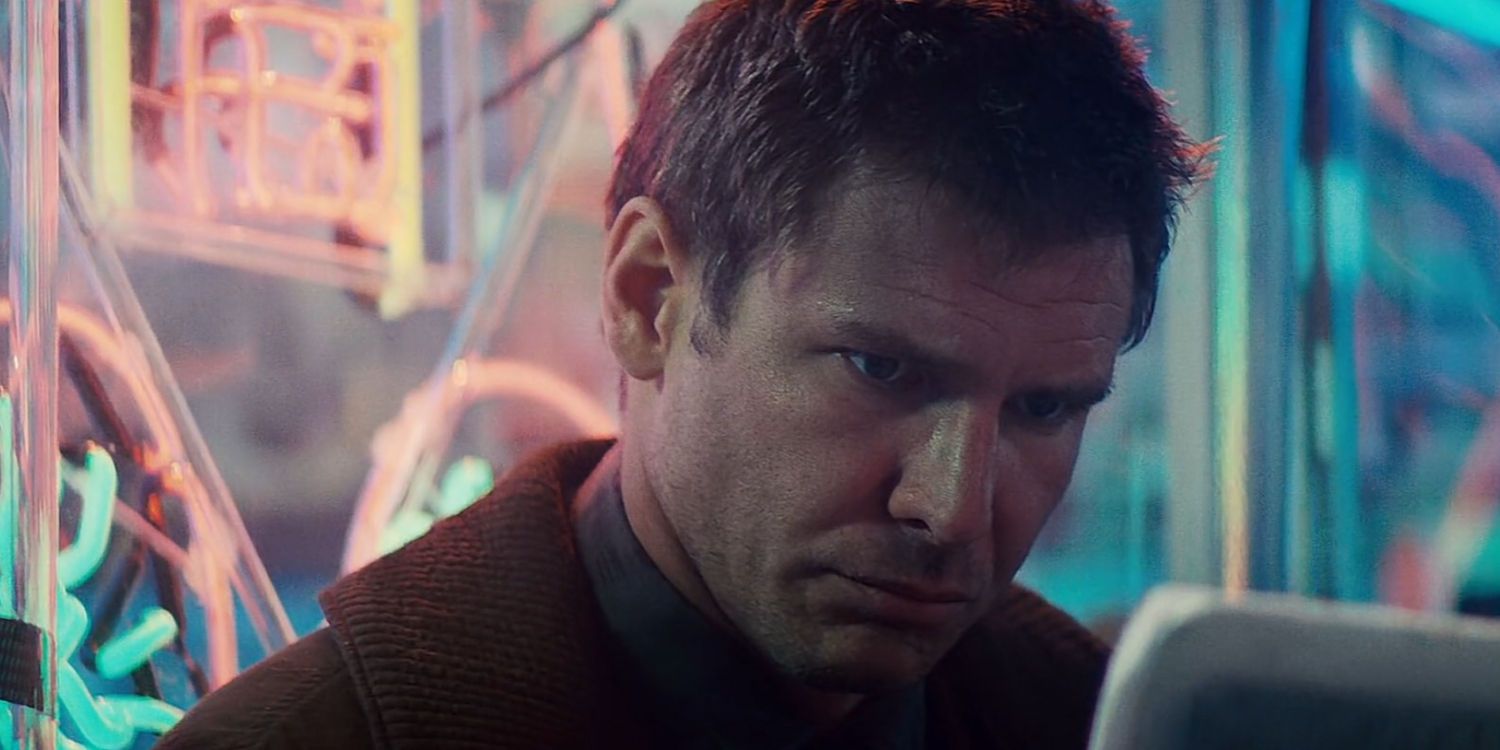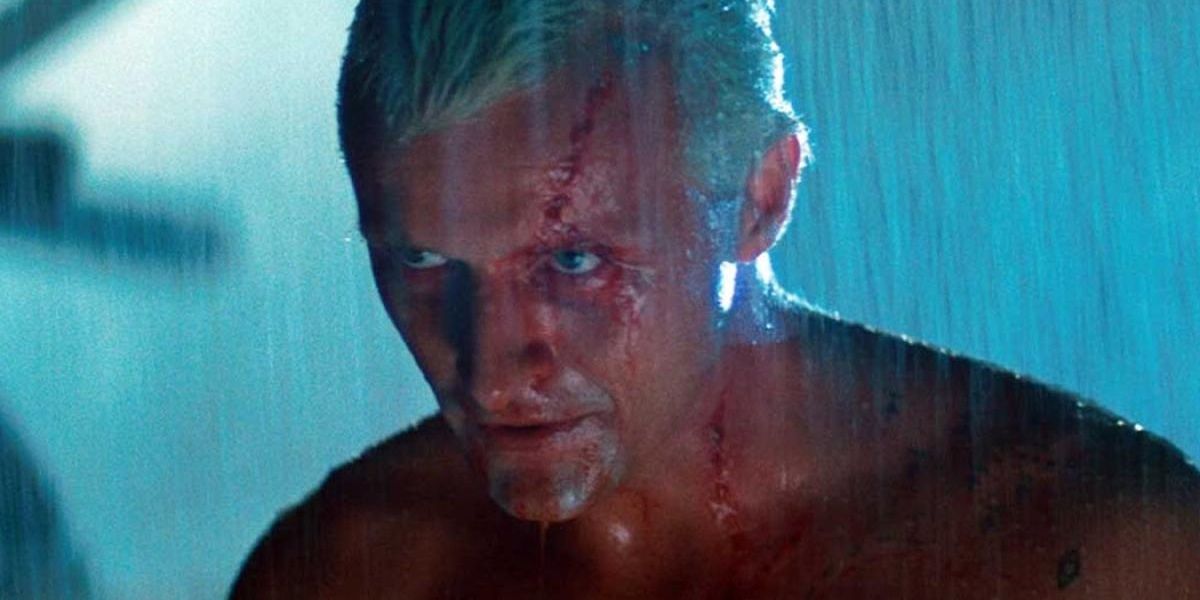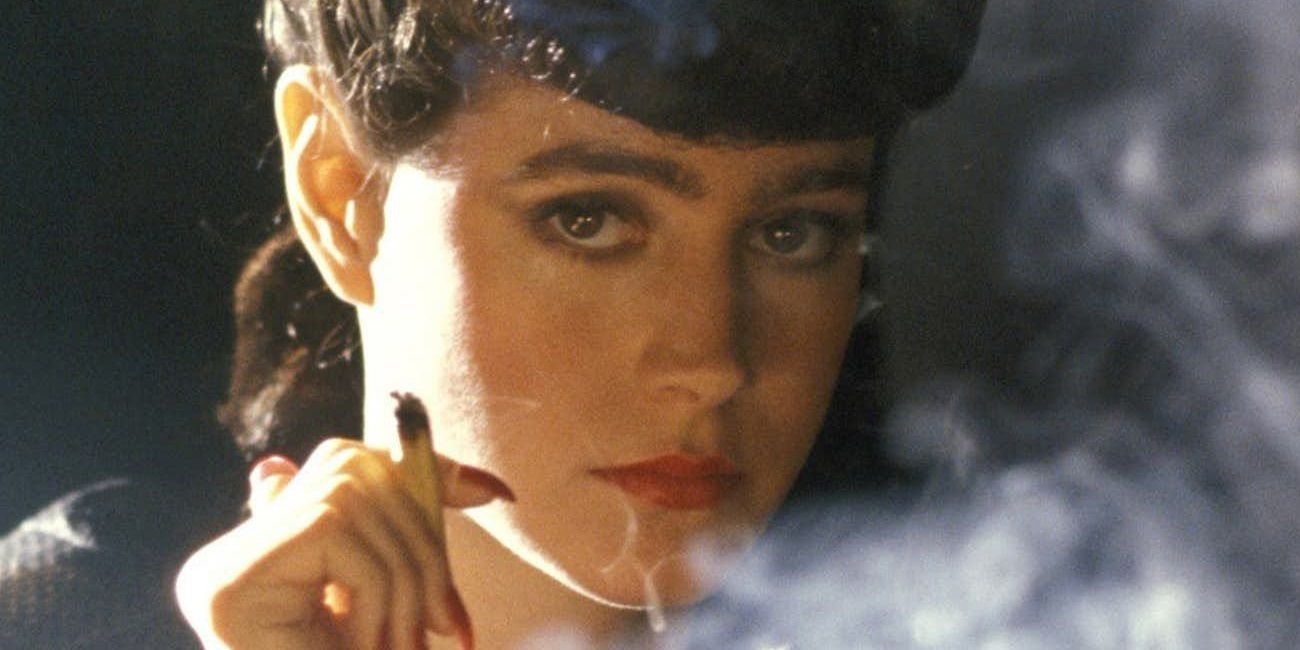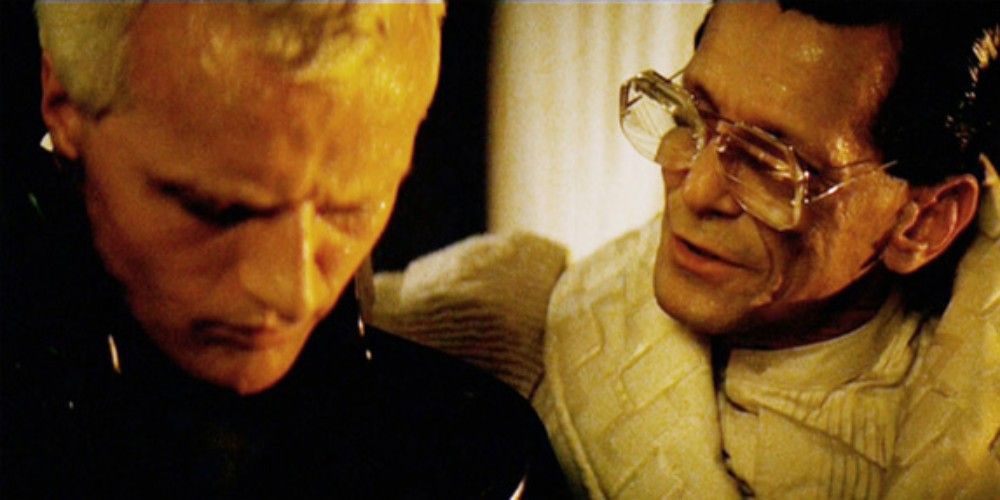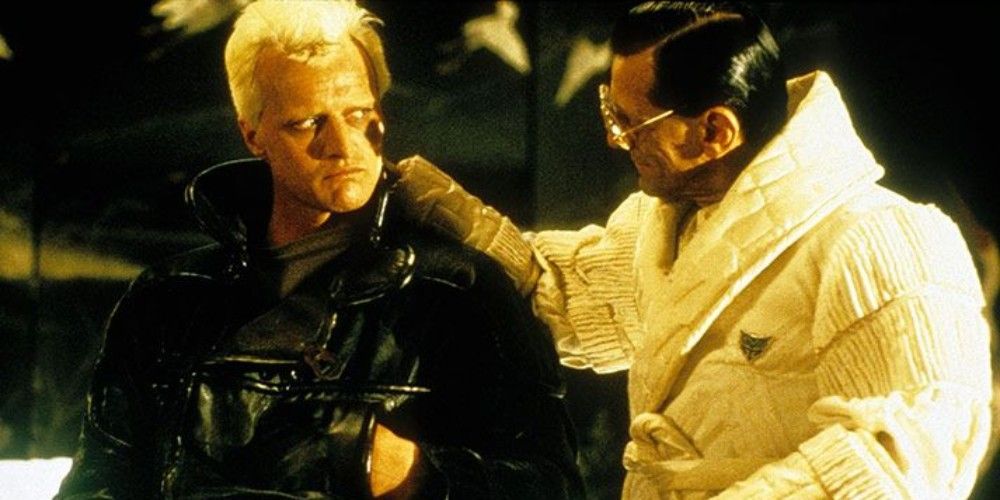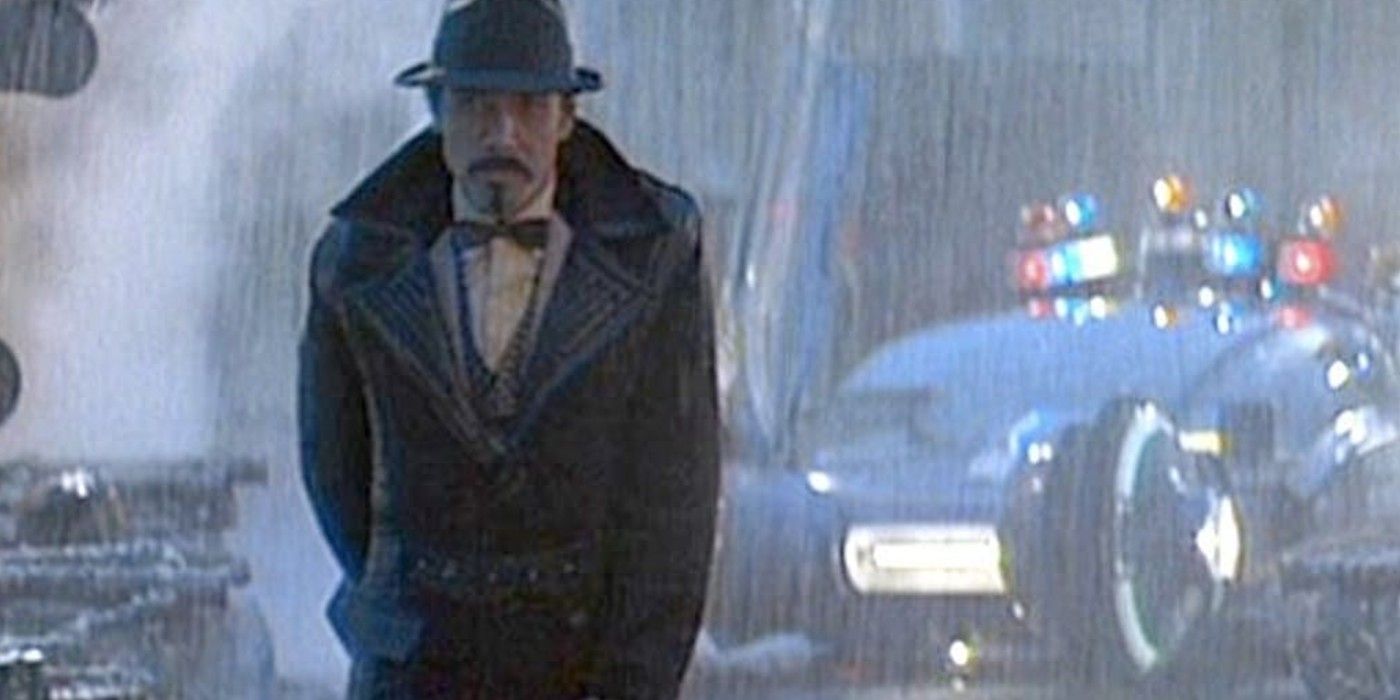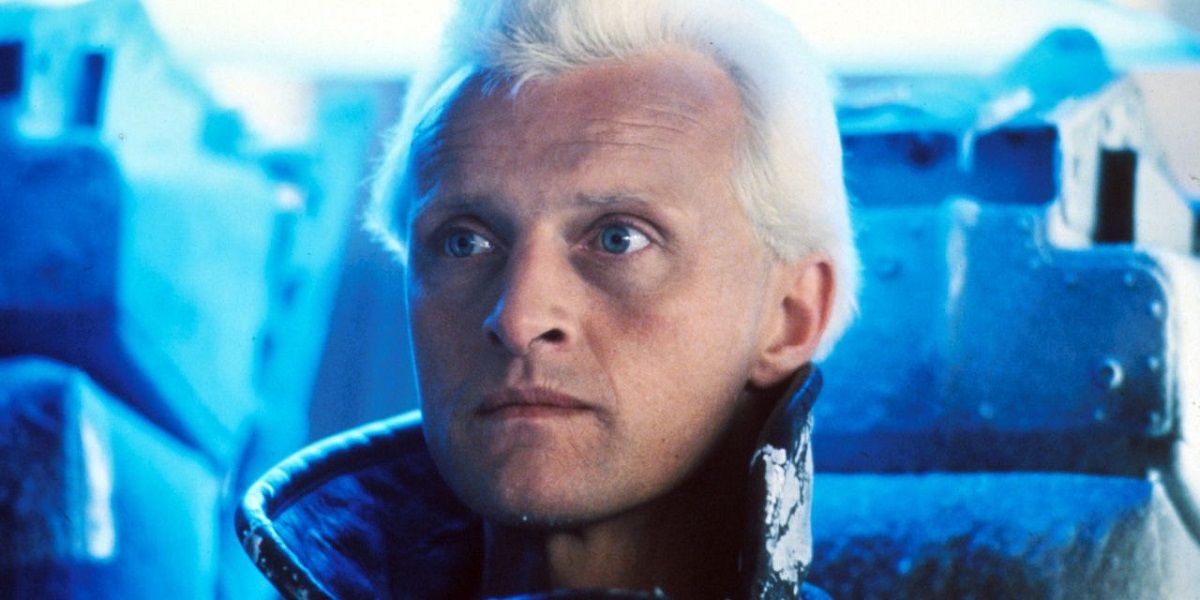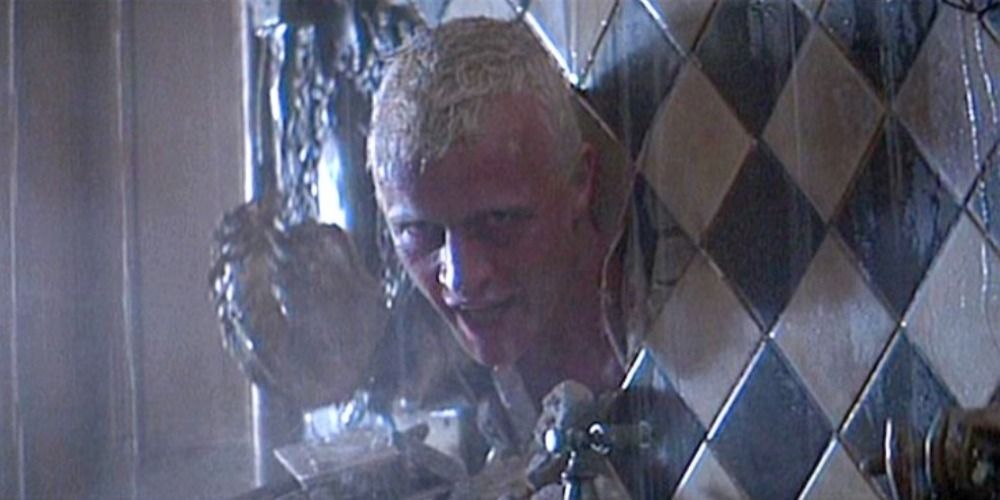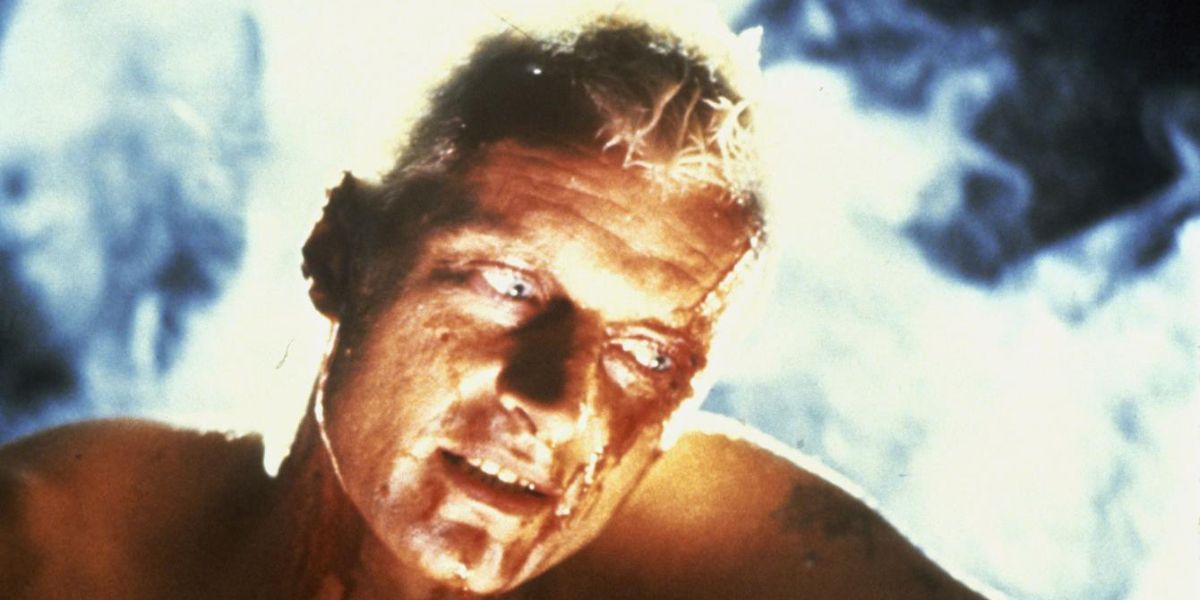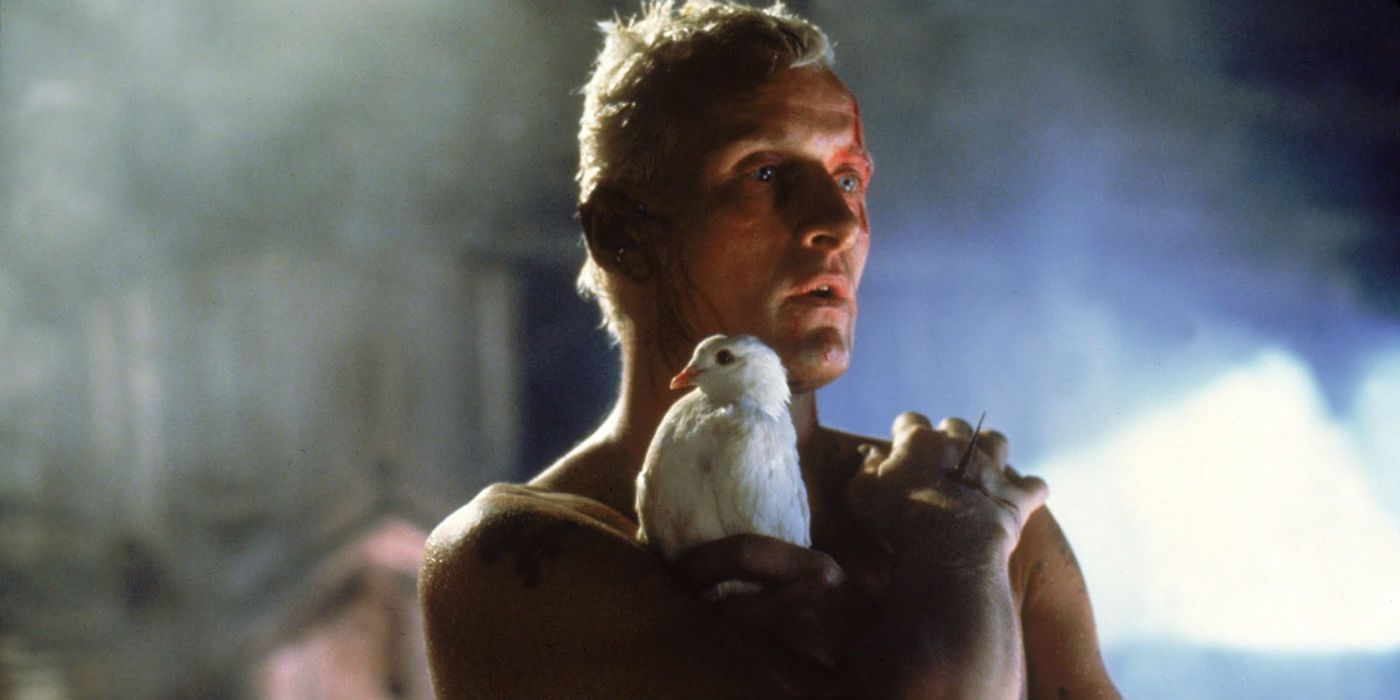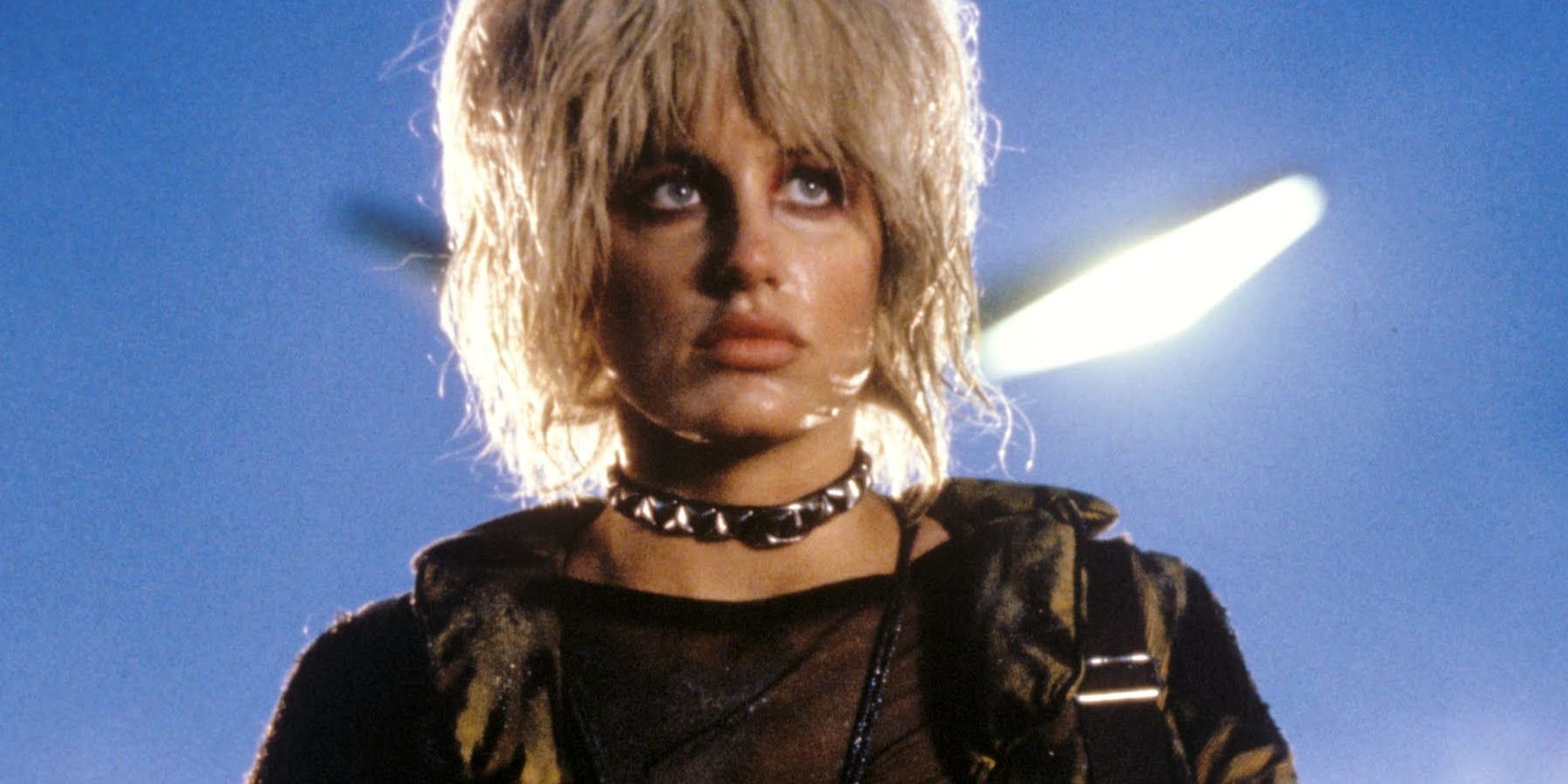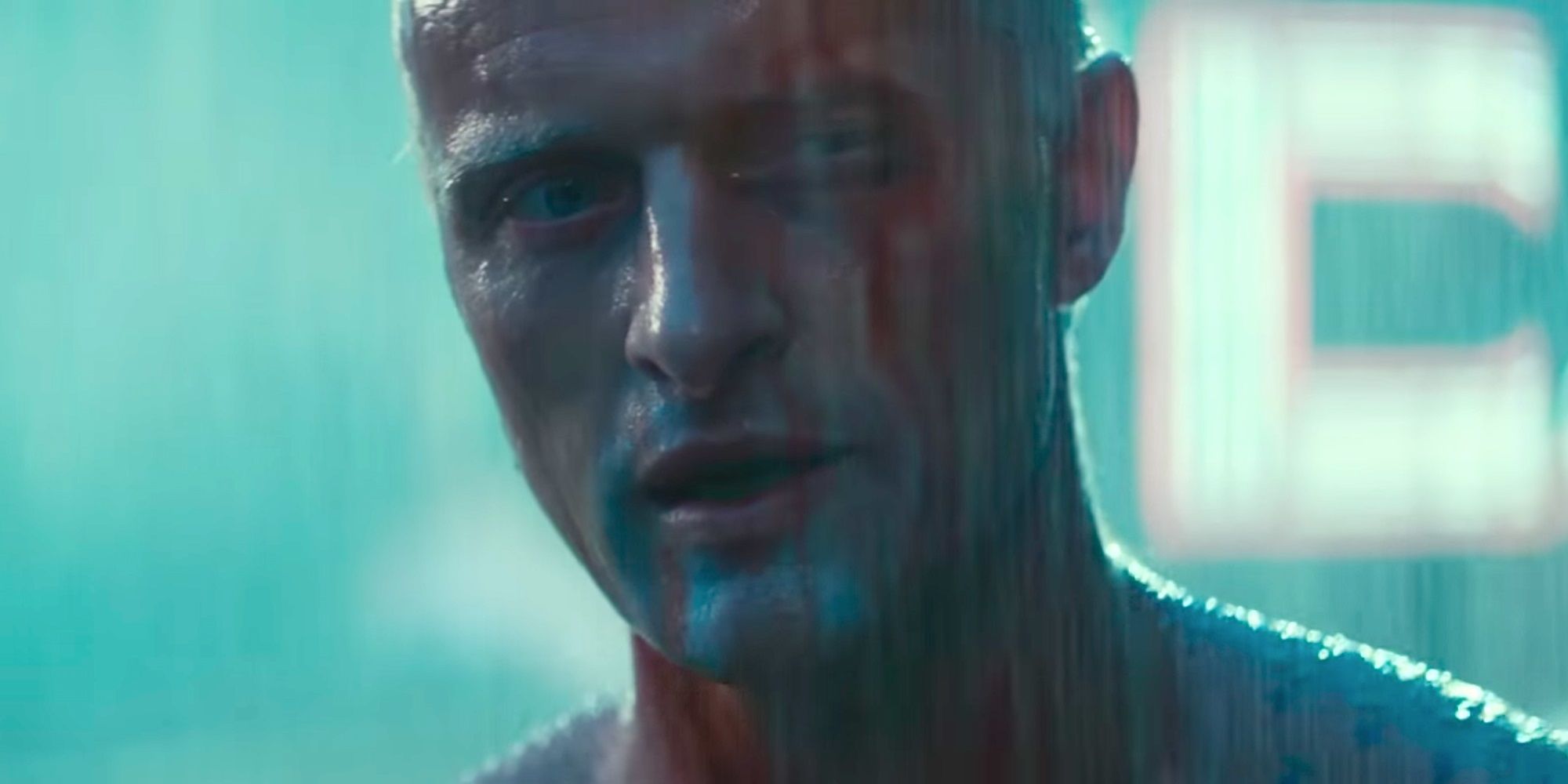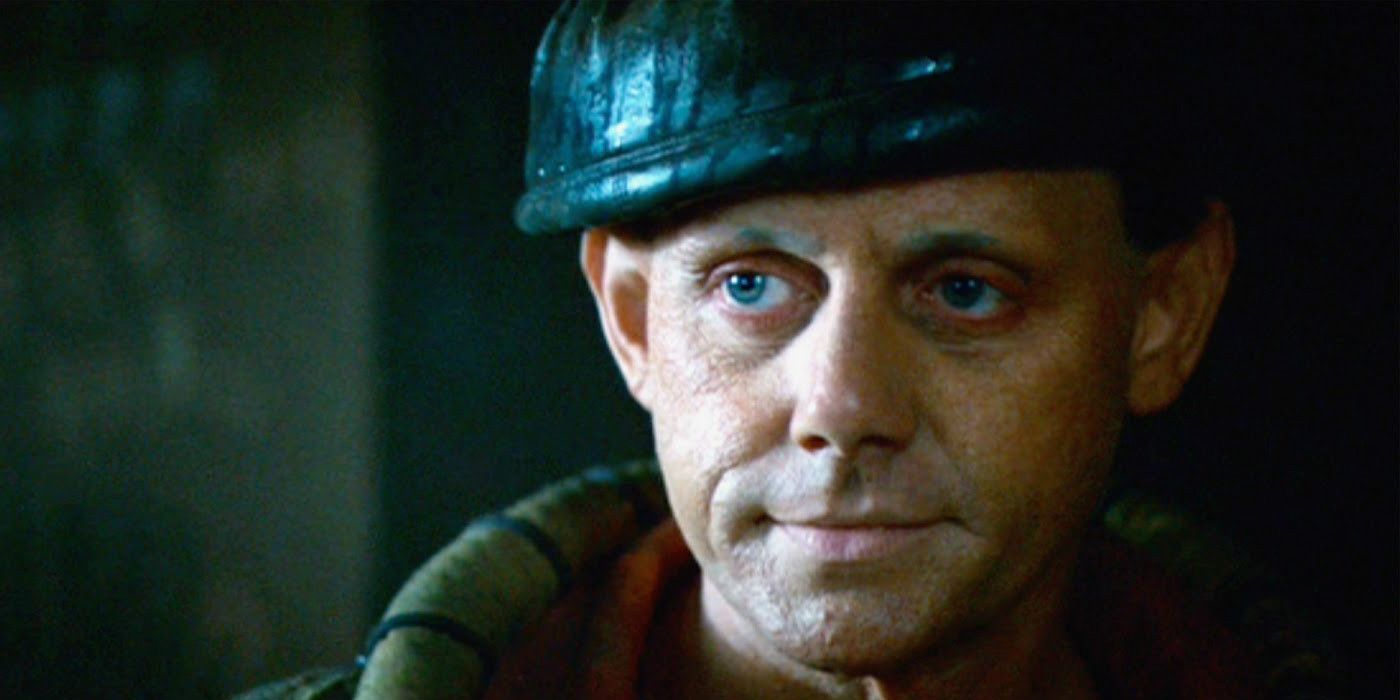When Ridley Scott adapted Philip K. Dick's classic sci-fi novel Do Androids Dream of Electric Sheep? for the big screen, there was plenty of gilded text to turn to for memorable dialogue. Blade Runner took the broader themes of the novel and infused them with the sort of elements that can make a cinematic experience truly unique; arresting visuals and memorable one-liners.
Scott's opus wasn't a dramatic hit in 1982 but has since risen to the level of a cult classic and even spawned a sequel, thanks in no small part to its quotable lines. Given its candid inspection of what it means to be human via its man-versus-machine narrative, its script is economical where it has to be, poetic where it should be, and with these top quotes, "built to last."
Updated on June 20th, 2022 by Kayleena Pierce-Bohen: This year noted composer Vangelis passed away, leaving behind an impressive discography that included the Blade Runner soundtrack. Like its haunting score, quotes from Blade Runner stay with fans long after the credits have rolled. Fans continue to enjoy Blade Runner quotes because they're neither gimmicky nor existing for the sake of exposition, and, like the movie's soundtrack, art direction, and thematic elements, represent the best parts of the science fiction genre.
Leon
"Wake Up. Time To Die."
Rutger Hauer steals the movie by playing both a touching and terrifying villain, but credit must be given to famous character actor Brion James, whose performance as Leon is no less memorable. Unhinged and wild, he's a desperate replicant who struggles with understanding his emotions.
After being relentlessly tested and experimented on, it's not surprising that he makes a tumultuous escape early on in the film, taking human lives in the process. Leon delivers one of the most recognizable Blade Runner quotes, that while brief, is a study in irony, and a perfect representation of the sly humor worked into the movie.
Deckard
"I Was Quit When I Come In Here, Bryant. I'm Twice As Quit Now."
One of the best antiheroes of any 1980s movie, Rick Deckard is an amalgamation of jaded private detective and cynical action star, with a smattering of sarcasm that contributes to some quotes from Blade Runner that are surprisingly clever.
He doesn't want to be recruited to hunt Replicants, and his sardonic exchange with his boss makes that very clear. It also offers an insight into his character as a man who is tired of the hypocrisy of hunting and killing beings that humans created and simply want to discard without any repercussions or discomfort.
Rachael
"'More Human Than Human' Is Our Motto."
Tyrell Corp sought to distinguish itself in the field of artificial intelligence by making synthetic life forms that were "more human than human," never expecting that its replicants would desire to feel fear, anger, hate, and love, which turned out to be a dangerous prerogative.
Moral implications in the making of replicants arose when the designers were aware of the dangers their existence created. Dr. Tyrell himself experienced them firsthand when much later, he was killed for the commodification of his creations.
Rachael
"Do You Like Our Owl?"
In the near-future world of Blade Runner, real animals are difficult to come by, leaving people no choice but to spend thousands of dollars on synthetic versions. Tyrell Corp offers a beautiful line of mammals, fouls, and reptiles that are "more animal than animal."
When Deckard makes a visit to the company's headquarters, he notes a particularly exquisite owl. Rachael asks him how he likes it, and he's incredulous when he finds out it's a fake.
Leon
"Painful To Live In Fear, Isn't It?"
While Roy Batty gets a lot of attention in Blade Runner for his intensity, Leon Kowalski set the tone for the Nexus 6 malevolence that would underscore the rest of the film. Leon utters the above line, which is echoed by Batty later in the film's climax, embodying the film's moral position.
More sophisticated replicants like Rachael aren't aware they're synthetic beings, but Leon and Roy are. They know of their expiration dates, they just don't know when it is. They live in perpetual fear, the fear of death, which is one of the most brutal components of the human condition.
Rachael
"I'm Not In The Business. I Am The Business."
Deckard often claimed to have little regard for replicants, and if they functioned as they were designed to, he would have no need to notice their behavior at all. Speaking to Rachael about retiring replicants is the only time he confesses to getting "the shakes" from killing them.
His topic of being in "the business" doesn't resonate with her because she can't relate to Deckard's living made from the commercial aspect of her peers. Rachael has to come to terms with the grim thought that she's nothing more than a commodity, but by being "more human than human" she can understand her deplorable treatment.
Deckard
"I've Had People Walk Out On Me Before, But Not When I Was Being So Charming."
It's not one of Harrison Ford's most iconic movie quotes, but even so, it showcases a playfulness to Deckard's personality. Normally a very cynical rogue, Rachael seems to bring out his more "charming" side, and the joy from their interactions seems to give him something worth pursuing.
This Blade Runner quote not only serves to make Deckard a more appealing leading man, but it also highlights the romantic subplot between him and Rachael, which only grows as the movie progresses. But first, of course, they must have a lovers' quarrel before they can realize how much they mean to one another.
Roy
"Chew, If Only You Could See What I've Seen With Your Eyes."
Throughout Blade Runner, the "eye" is a powerful symbol. The film begins with Leon's erratic eye movements being studied as part of a test to determine whether or not he's human, and Roy's artificial eyes offer him a way to begin developing certain emotions.
When Roy hunts down Chew, the man responsible for making his eyes, he explains to the terrified engineer that the eyes he created for him helped to inform his maturing feelings. Chew may have given him his eyes, as Tyrell Corp gave him his body and mind, but it's he who used them to transcend his replicant status.
Rachael
"I Can't Rely On My Memories."
One of the most moving aspects of the plot is that the replicants are made to be sympathetic beings. Every replicant, no matter their history, can be viewed in a tragic way, especially Tyrell's star creation Rachael, who at one point tells Deckard that she can't even rely on her own memories.
Memories are what make up a person's personality and sense of self. Without them, they are a blank slate, devoid of past experiences, and unable to know how to interact with the world. Rachael thought she knew who she was because of the memories implanted into her cortex, but after discovering the truth, she realizes she cannot ever know who she truly is, adding to the movie's fantastic sense of neo-noir dread.
Dr. Tyrell
"The Light That Burns Twice As Bright Burns Half As Long — And You Have Burned So Very, Very Brightly, Roy. Look At You: You're The Prodigal Son; You're Quite A Prize!"
When Roy Batty goes in search of his creator, intending to ask for an extension of his life cycle, he finds only an avuncular rebuke from his father figure, Dr. Tyrell. Tyrell tries to convince his irascible creation that he's managed in his four years to live an extraordinary life, but that no matter what he does he cannot stop his time from running out.
Roy cannot take the news and kills Tyrell, one final act of punishment for making a being that is so sophisticated it can perceive the injustice of its own fate. The very power that Tyrell granted his creation uses it to end his life.
Roy
"Nothing The God Of Biomechanics Wouldn't Let You Into Heaven For."
Roy Batty spends two-thirds of Blade Runner trying to get to Dr. Tyrell, naively thinking he can extend his four-year life cycle. When they finally meet and Roy learns the hard truth that Tyrell can do nothing, he becomes despondent.
For Roy, the despair is aped, but for a moment he does seem bothered by the "questionable" things he's done, as though they will count against him in another life his synthetic kind is sure to never see. When Tyrell asks him to elaborate on the nature of the things, he sardonically utters this fanciful line.
Gaff
“It’s Too Bad She Won’t Live. But Then Again, Who Does?”
Edward James Olmos portrayed the enigmatic Gaff in the film, a cop fond of folding origami critters as well as waxing philosophical. A sometimes partner of Deckard's, he knew more about the famous Blade Runner than he knew about himself.
Gaff had lots of lines that sparked debate over Deckard's status as a human or a replicant, and his line concerning Rachael seemed to imply that whatever Deckard might be, he should attempt to live a life that meant something.
Roy
"Fiery The Angels Fell. Deep Thunder Rolled Around Their Shoulders... Burning With The Fires Of Orc."
Rutger Hauer often suggested lines of dialogue for the movie to expand the scope of its world, and one came from famous English poet William Blake who has become revered as one of the greatest literary minds to have ever existed. Hauer selected for Batty a quote from Blake's "America: A Prophecy" in the scene he shares with Chew.
Hauer changed the original opening line from "Fiery the angels rose" to "Fiery the angels fell", perhaps indicating the replicants' fall from grace in the eyes of their creator. Historians have alluded to the tumultuous figure of Orc and his story having something to do with a son revolting against his father.
Roy
"Not Very Sporting To Fire On An Unarmed Opponent. I Thought You Were Supposed To Be Good. Aren't You The 'Good' Man?"
Batty taunting Deckard in their final climactic fight is just one of many instances in which Deckard confronts his own fallacies. Viewers spend the entire film wondering if Deckard is not only a human or a replicant but whether or not he is a "good man" (the hero of the story) for killing beings who simply want the right to exist.
Deckard knows he must do whatever he can to eliminate the threat that Batty presents, but even though he has a firearm and Batty is defenseless, his mind is a far greater weapon than anything material. With it, he can disarm Deckard in ways that go beyond the physical.
Roy
"Six! Seven! Go To Hell Or Go To Heaven!"
The entire confrontation between Deckard and Batty at the end of the movie is a chaotic wild ride of adrenaline and primal energy, thanks in part to Rutger Hauer's bold physical performance. As he charges around the dilapidated building, he becomes a primordial version of a human.
He is Deckard's superior in brute strength, stamina, and cunning, but even he knows all those traits are for naught because he is running out of time. It's as though he wants to get a visceral experience out of his final moments, and he chooses Deckard as the devil he dances with in the pale moonlight. Incidentally in one version of the film, Deckard has some truly poignant commentary as Batty dies.
Roy
“I Want More Life.”
One of the original Replicants to lead a revolt off-world, Roy Batty was designed and engineered to be a combat soldier. Like many of his Nexus 6 generation, his life cycle was only four years, just enough time for him to fulfill his purpose.
But Roy, like the other replicants, wanted emotions. He wanted a chance to experience life the way humans did, and he led the hunt for Tyrell so that his creator could extend his life expectancy. Blade Runner is a movie in which the villain was actually right, from a certain point of view.
Pris
"I Think, Sebastian, Therefore I Am."
With her doll-like features and child-like personality, Pris represents the innocence of a synthetic person who hasn't lived a very long life. She sees the world through young eyes, where everything is dazzling and new, and life stretches onward in endless possibilities.
The harsh reality of Pris's situation is that she doesn't have a very long life at all, and like many things about that life, doesn't understand why that is. She's able to playfully philosophize with J.F. Sebastian in this quote, but it doesn't mean she grasps its meaning.
Roy
“I’ve Seen Things You People Wouldn’t Believe. Attack Ships On Fire Off The Shoulder Of Orion. I Watched C-Beams Glitter In The Dark Near The Tannhauser Gate. All Those Moments Will Be Lost In Time, Like Tears In Rain.”
One of the most tragic figures in all of Blade Runner is its villain, who emerges as a Byronic hero of sorts at its epic finale. Though he's killed mercilessly, the audience can't help but empathize with him due to the magnetic performance of the late Hauer, who imbues Batty with a sense of noble righteousness. In a scene that poses bigger questions than the main plot, Roy hints at a wider universe as he mentions "attack ships on fire off the shoulder of Orion" as his body begins to shut down.
In his quest for more life, he communicated to Deckard the injustice of the Tyrell Corp, and by telling him his memories, they will be preserved after his death. It became one of the most provocative — not to mention human — lines of the entire film, and "tears in rain" remains a beloved Blade Runner quote.
J.F. Sebastian
"You're So Different. You're So Perfect."
Blade Runner has a reputation for being a great cyberpunk movie because of its emphasis on futuristic technological advancements. Indeed, Tyrell's quest for perfection through technology created Replicants but is juxtaposed against characters like J.F. Sebastian, who love the old, discarded, and forgotten.
A quirky inventor who works for Tyrell, JF Sebastian helps the Replicants and shows a surprising amount of tenderness towards them. Though he likes to repair what's broken rather than cast it aside, abhorring the planned obsolescence that has doomed Pris and Roy to their deaths, even he can recognize the supremacy of their engineering.
Deckard
"I Don't Get It, Tyrell, How Can It Not Know What It Is?"
The very question Deckard asks Tyrell reverberates throughout the movie; as he pursues the Replicants to the ends of their life spans, he confronts different aspects of his own humanity, with models like Roy and Rachael challenging him to face a disturbing truth; that he might be a Replicant himself.
This Blade Runner quote references Deckard's test of Rachael, but based on his own explanation about how her memories could be implanted, and she would never be able to know, it's as likely that his memories could be implanted as well. Fans have spent as many decades quoting Blade Runner as they have looking for the red glow in Deckard's eyes.

